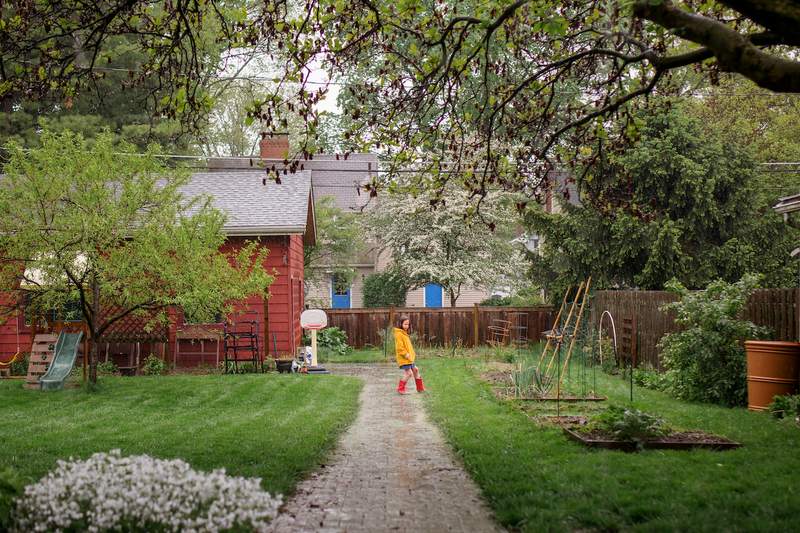Buying your first home can prove challenging. Along with the various steps you need to take, you’ll also need to gather the finances necessary to purchase your property. It can all make the process of buying your first home seem like an overwhelming task.
Fortunately, several first-time home buyer programs, grants and loans can help you with the financial challenges of purchasing a home. Many are designed to reduce the size of your down payment and lower your mortgage’s closing costs. Some are even designed to help credit-challenged borrowers who might otherwise struggle to qualify for a mortgage loan.
At A Glance: Types Of First-Time Home Buyer Programs
You can choose from several types of first-time home buyer programs, some offered by the federal and state governments, some by nonprofit organizations.
- Low-down-payment conventional loans: Saving for a down payment can be a challenge for first-time buyers. Conventional loans – those not insured by a government agency – can help because they require a lower down payment. You might qualify for one of these loans and have a down payment of as little as 3% of your home’s final purchase price.
- Down payment assistance: Organizations often provide down payment assistance programs, loans or grants designed to reduce or eliminate the money that first-time buyers must pay for a down payment. DPA can come in the form of loans with low interest rates, grants that don’t have to be repaid or loans that are only repaid when certain conditions are met, such as when you sell your home or refinance your mortgage.
- State and federal first-time home buyer programs: The federal government or state governmental agencies might offer first-time buyer programs designed to cover your down payment or closing costs. Some of these programs might offer grants that you don’t have to repay or loans that you only repay when you sell your home. Some of these programs might be targeted to specific occupations such as teachers, police officers or other public servants.
- Nonprofit and employer-sponsored first-time home buyer programs: Nonprofit organizations or your employer might also offer programs for first-time buyers. Again, depending on the program, you might or might not be required to pay back whatever financial assistance you receive.
What’s Your Goal?
Buy A Home
Discover mortgage options that fit your unique financial needs.

Refinance
Refinance your mortgage to have more money for what matters.
Tap Into Equity
Use your home’s equity and unlock cash to achieve your goals.
Options For Low-Down-Payment Conventional Loans
It’s not surprising that many first-time home buyers worry about coming up with enough funds for a down payment. Consider that a down payment of 10% for a home costing $200,000 would be $20,000.
Fortunately, you don’t need to come up with such a large down payment. Both Fannie Mae and Freddie Mac, two government-sponsored enterprises that guarantee mortgage loans, offer programs that require lower down payments.
Fannie Mae HomeReady Mortgage
The Fannie Mae HomeReady mortgage program requires a down payment of just 3% of your home’s purchase price. For that home costing $200,000, then, you’d need a down payment of just $6,000.
The HomeReady program also provides a $2,500 credit that borrowers with lower incomes can use to help pay for their loan’s closing costs and down payment. To qualify, you’ll need an annual income equal to or less than 50% of the area median income of the community in which your new home is located.
There are some requirements for this mortgage type. You must use a HomeReady mortgage to purchase a one- to four-unit property that will serve as your principal residence. If more than one person is applying for a loan, the combined annual qualifying income of all borrowers must not exceed 80% of the area median income.
Fannie Mae Conventional 97 Mortgage
You might also qualify for a 97% LTV mortgage originated by a private lender and guaranteed by Fannie Mae without going through the HomeReady program. This type of mortgage, which also requires a down payment of just 3% of a home’s purchase price, is available to borrowers if at least one is considered a first-time home buyer. Note that Fannie Mae’s definition of a first-time buyer is a bit different: The agency defines a first-time buyer as someone who hasn’t owned a home in the last 3 years.
Unlike the HomeReady program, a conventional 97 loan comes with no income limits. You can earn a high income and still qualify, as long as one borrower counts as a first-time home buyer.
If all borrowers are considered first-time buyers, at least one must complete a homeownership education course. You can only use this loan type to buy a one-unit principal residence, and you must take out a fixed-rate mortgage with a maximum term of 30 years.
Freddie Mac Home Possible Mortgage
The Freddie Mac Home Possible loan is like Fannie Mae’s HomeReady program. If you take out a Home Possible loan, you can provide a down payment as low as 3% of your home’s price.
This loan program is open to all borrowers. You can also use a co-borrower’s annual income to help increase your chances of qualifying for a Home Possible loan. This co-borrower does not have to live in the home that you are buying.
You can rely on several sources for your down payment funds, including gifts from family members and financial assistance from your employer.
Your income can’t be higher than 80% of the area median income in the community in which the home you are buying sits. You can buy residences with one to four units with one of these loans.
Freddie Mac HomeOne Mortgage
The Freddie Mac HomeOne mortgage also requires a down payment of just 3%. But unlike the Home Possible mortgage, it is only available to first-time home buyers. Freddie Mac considers you a first-time buyer if you have not owned a home during the 3 years before buying your new home.
You can only buy a single-unit property with this mortgage type, and you must apply for a home loan with a fixed interest rate. There are no income limits with the HomeOne mortgage. If all buyers are considered first-time buyers, at least one buyer must take a home buyer education course.
Ready To Become A Homeowner?
Get matched with a lender that can help you find the right mortgage.
Down Payment Assistance
If you are a first-time home buyer struggling to come up with the funds for a down payment, you might consider exploring the many down payment assistance programs scattered across the country. These programs come in the form of loans that you might need to pay back or grants that you won’t.
Down Payment Assistance Loans
Down payment assistance loans are typically second mortgages that you use to pay your home’s down payment. These loans either don’t charge interest or charge low rates. Many also offer deferred payments, meaning that you might not have to pay back your loan until you sell your home or refinance your mortgage. Other down payment assistance loans don’t require you to pay them back for a set number of years, perhaps 30.
Other down payment loans are forgivable if you meet certain requirements, such as living in your home for at least 10 years.
You can find these loans by entering “down payment assistance loan” and your state in your favorite search engine.
Some examples include:
- Washington state’s Home Advantage Down Payment Assistance, an interest-free second loan that you don’t have to start paying back for 30 years.
- New York City’s HomeFirst Down Payment Assistance Program that offers a forgivable loan of up to $100,000 that you can use to pay for closing costs or your down payment. If you borrow $40,000 or less, you won’t have to pay this loan back if you live in your home for at least 10 years. If you are borrowing more, the loan is forgivable if you live in your home for at least 15 years.
Down Payment Assistance Grants
Down payment assistance grants are even more valuable because you aren’t required to pay them back. These are available from many states. To find one, enter “down payment assistance grant” and your state name in a search engine.
Some examples of these grants include the following:
- The Chicago Housing Authority’s program provides a grant of up to $20,000 that you can use toward the purchase of a home. This includes using the funds to cover the cost of a down payment or closing costs. To qualify, you need to be considered a first-time buyer, meaning you haven’t owned a home in the last 3 years. You must also live in the home as your primary residence.
- The Colorado Housing Finance Authority offers its own down payment assistance grant of up to $25,000 or 3% of your first mortgage, whichever is less. You don’t have to repay these funds.
- The Iowa Finance Authority offers a down payment assistance grant of $2,500 that first-time home buyers can use to help cover down payment and closing costs.
Take The First Step To Buying A Home
Find a lender that will work with your unique financial situation.
State-Level First-Time Home Buyer Programs
Depending on where you live, your state might offer forgivable or low-interest loans or grants to help you cover down payment and closing costs.
For instance, the Alaska Housing Finance Corporation offers the Home Opportunity Program, which provides down payment and closing cost assistance to low-income home buyers. If you are buying in Arizona, you could take advantage of the Home Plus down payment assistance program. Through this program, buyers can take out a 30-year, fixed-rate mortgage with up to 4% down payment assistance.
Most of these home buyer assistance programs are offered through states’ housing finance agencies. You can find a list of these state agencies maintained by the National Council of State Housing Finance Agencies.
Federal First-Time Home Buyer Programs
The federal government also provides several programs that first-time buyers can use to help reduce the cost of buying a home.
Government-Backed Loans
Best known are the mortgage loans insured by three government agencies. These government-backed mortgage loans allow borrowers to take out mortgages requiring either low or no down payments.
- Federal Housing Administration loans: FHA loans, insured by the Federal Housing Administration, require down payments of just 3.5% of a home’s purchase price for buyers with FICO credit scores of at least 580. Borrowers with FICO Scores from 500 to 579 need a minimum down payment of 10% of their home’s purchase price. These loans are also available to buyers with lower credit scores.
- Department of Veterans Affairs loans: VA loans, insured by the U.S. Department of Veterans Affairs, are offered to active-duty members or veterans of the U.S. military. These loans are also available to eligible surviving spouses of military veterans who have not remarried. If you qualify for a VA loan, you may not have to come up with any down payment. However, there may be a required funding fee.
- U.S. Department of Agriculture loans: Borrowers also won’t need any down payments if they qualify for USDA loans, loans insured by the U.S. Department of Agriculture. You must, though, buy an eligible USDA property that’s located in a designated rural area.
Good Neighbor Next Door
Law enforcement officers, pre-kindergarten through 12th-grade teachers, firefighters and emergency medical technicians can participate in the Good Neighbor Next Door program operated by the U.S. Department of Housing and Urban Development.
Buyers who purchase a home in what HUD has designated as revitalization areas will receive a discount of 50% on the price of the residence they buy. They must, though, agree to live in the home as a principal residence for at least 36 months.
You can find a list of Good Neighbor Next Door home listings in your state on HUD’s Homestore site.
HomePath Ready Buyer Program
Under Fannie Mae’s HomePath Ready Buyer program, first-time home buyers can receive up to 3% of the purchase price of the home they are buying to help pay for mortgage closing costs.
To qualify, home buyers must complete an online home buyer education course. Buyers can find a HomePath training course at the online home of HomePath. Once they complete a course, they will receive a certificate of completion.
Again, Fannie Mae considers you a first-time buyer if you haven’t owned a home in the last 3 years.
Native American Direct Loan
If you are a veteran of the U.S. military and either you or your spouse is Native American, you might qualify for a low-interest-rate Native American Direct Loan, insured by the VA. These loans are attractive because they require no down payment and offer interest rates starting at a low 2.5%.
You must buy a home that sits on federal trust land. You must also live in the home that you are buying as a principal residence.
Nonprofit First-Time Home Buyer Programs
Nonprofits also offer financial assistance to first-time home buyers. This includes two well-known programs:
Habitat For Humanity
If you’re willing to help build your new home, you might be able to purchase a single-family home at a significant discount through nonprofit homebuilder Habitat for Humanity. You can apply for a Habitat for Humanity house with your local Habitat organization.
Prospective Habitat homeowners must demonstrate a need for safe and affordable housing. Households eligible for Habitat homes must have household incomes that do not exceed 60% of the area median income in the area in which their home will be located.
You’ll also have to put in sweat equity, meaning that you must help Habitat for Humanity build your home. Sweat equity can also include taking homeownership education courses or volunteering in one of Habitat’s ReStore retail locations.
Neighborhood Assistance Corporation of America
The Neighborhood Assistance Corporation of America has closed more than 75,000 mortgages for affordable housing during its 30 years. It also offers several programs that can make buying a home less of a financial strain for first-time buyers.
NACA offers its Best in America mortgage, which requires no down payment, charges no closing costs or fees and charges no mortgage insurance. This loan also comes with interest rates that are below market value.
All home buyers can apply for this loan, though NACA says that the program’s focus is on low- to moderate-income people purchasing in low- to moderate-income areas. You can use a Best in America Mortgage to purchase single-family homes, condominium units, multifamily properties, mixed-use properties and co-ops.
NACA also offers its One-Dollar Homeownership Program. This is a partnership between NACA and cities and towns across the country in which low- to moderate-income buyers in underserved communities can purchase a vacant house or lot from the city for $1. NACA will provide financing for any needed repairs or renovations with its Best in America Mortgage.
Employer-Sponsored First-Time Home Buyer Programs
Employer-assisted housing programs are another source that first-time home buyers can turn to for help in buying a home. There’s no guarantee, though, that your employer will offer such a program.
Under these programs, employers might provide grants that their employees can spend on down payment or closing costs or loans that are forgivable if, say, employees work for the company for a certain number of years.
Your employer might or might not offer home buying programs. Check with your supervisor or human resources department to find out.
What About Students And Recent Graduates?
If you’re a college student or a recent graduate, the odds are high that you’re either paying off or will soon be paying off student loans.
Student loan debt can make it difficult to qualify for a mortgage depending on your income. That’s because of your debt-to-income ratio, which is a measure of how much of your gross monthly income your recurring monthly debts consume. Lenders use this ratio when determining how much of a mortgage you can qualify for.
Most lenders want your recurring monthly debts, including your new mortgage payment, minimum required credit monthly card payments and student, auto and personal loan payments, to equal no more than 50% – 57% of your gross monthly income, your income before taxes are taken out. However, the maximum DTI allowed will depend on your lender, the loan you get and your specific financial situation.
If you are paying off student loan debt, it can be more difficult to keep your debt-to-income ratio under that level. It’s important, then, to keep your credit card debt, and the minimum monthly payment that comes with it, low or to pay it off completely. If you want to buy a home, hold off on making any big purchases too. Buying a car that comes with a big auto loan payment or applying for a personal loan to pay for a new bedroom set could throw your DTI out of whack and keep you from buying a home.
FAQ About First-Time Buyer Programs
Questions about first-time buyer programs? Here are answers to some of the most commonly asked.
The Bottom Line
If you’re looking to buy your first home but are struggling to come up with the upfront costs, there is help available. There are various programs, grants, and loans designed to help make homeownership more affordable.

Dan Rafter
Dan Rafter has been writing about personal finance for more than 15 years. He's written for publications such as The Washington Post, Chicago Tribune and Wise Bread.












